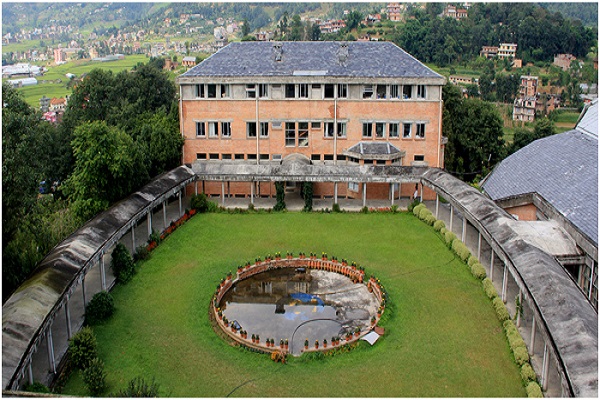Kathmandu University College

Kathmandu University (KU) is an autonomous, not-for-profit, self-funding public institution established by an Act of Parliament in December 1991. It is an institution of higher learning dedicated to maintaining the standard of academic excellence in various classical and professional disciplines.
The mission statement of the University is “to provide quality education for leadership”. The vision is “to become a world-class university devoted to bringing knowledge and technology to the service of mankind”.
The University aspires to serve the nation by fulfilling the needs of the society through the motto of taking knowledge and skills “from the campus to the community.”
The University’s broadly perceived signature features include autonomous administration, financial self-sustenance, regular maintenance of the academic calendar, sustained trust of the international academic community, optimum contact between faculties and students and student-friendly environment, among others. Similarly, the University’s graduates are widely known for attributes such as substantive exposure to the industry and the community, research competence, technological literacy, moderate to high-level communicative competence, teamwork and leadership spirit and global compatibility.
The Senate is the apex body of the University. It comprises University authorities, dignified educationists, government secretaries, donors, mayors of local municipalities, teacher representatives, student representative, and representatives from affiliated institutions and industries. The Prime Minister, who is the Chancellor of the University, chairs the Senate. The Minister of Education is the Pro-Chancellor. The Executive Council and Academic Council develop internal policies and programs to run the University. The University’s Board of Trustees, which comprises renowned personalities including the founding fathers, is entrusted with the responsibilities of advising long-term plans and generating and managing of resources.
The University operates through seven Schools: (i) School of Arts, (ii) School of Education, (iii) School of Engineering, (iv) School of Law, (v) School of Management, (vi) School of Medical Sciences and (vii) School of Science.
At present, the University offers more than 140 long-term and short-term academic programs and courses from intermediate to Ph.D. levels. As of December 2018, the University has produced 28,794 graduates.
Student fees cover 60% in KU’s financial management. The same percentage of student fees goes into salary and allowances. Other sources cover 40%, whereas the government support is 10%. A total of about 10% of the students studying in the University at various levels receive scholarships apart from educational loan facilities and other sponsoring schemes from different organizations.
KU runs academic programs most of which are credited for being introduced for the first time in the country. Business Administration, Pharmacy, Environmental Science, Biotechnology, Human Biology, Mechanical Engineering, Computer Engineering, Electrical and Electronics Engineering, Geomatics Engineering, Development Studies, Social Work, Technical Education, Media Studies, Civil Engineering with Specialization in Hydropower, Landscape Management and Heritage studies, Doctor of Medicine (DM) in Gastroenterology, DM in Neurology and MS by Research in Glaciology count among the pioneering programs in Nepal.
The University marked the year 2016 as its Silver Jubilee Year. On the occasion of the Silver Jubilee celebrations, Prof. Dr. Ram Kantha Makaju Shrestha, the then Vice-Chancellor, brought forward a vision document, Silver Jubilee Initiatives – Vision 2030, which pledges thrust for quality, innovation, equity, identity, impact and global engagement. These initiatives, founded on the University’s key achievements for 25 years in quality education, will remain instrumental towards achieving the status of a world-class university.


